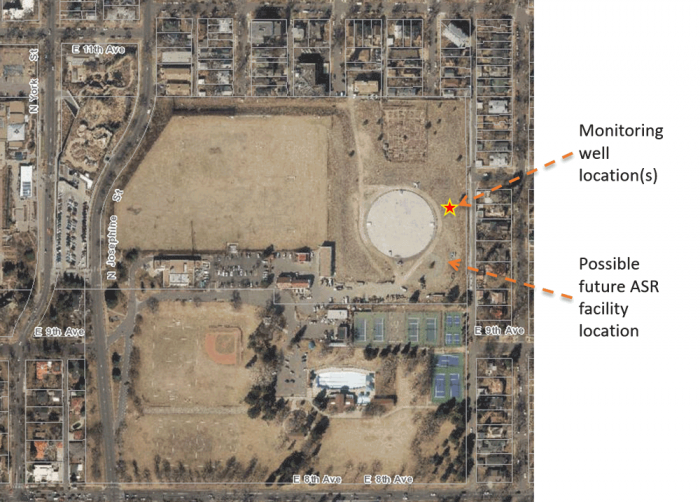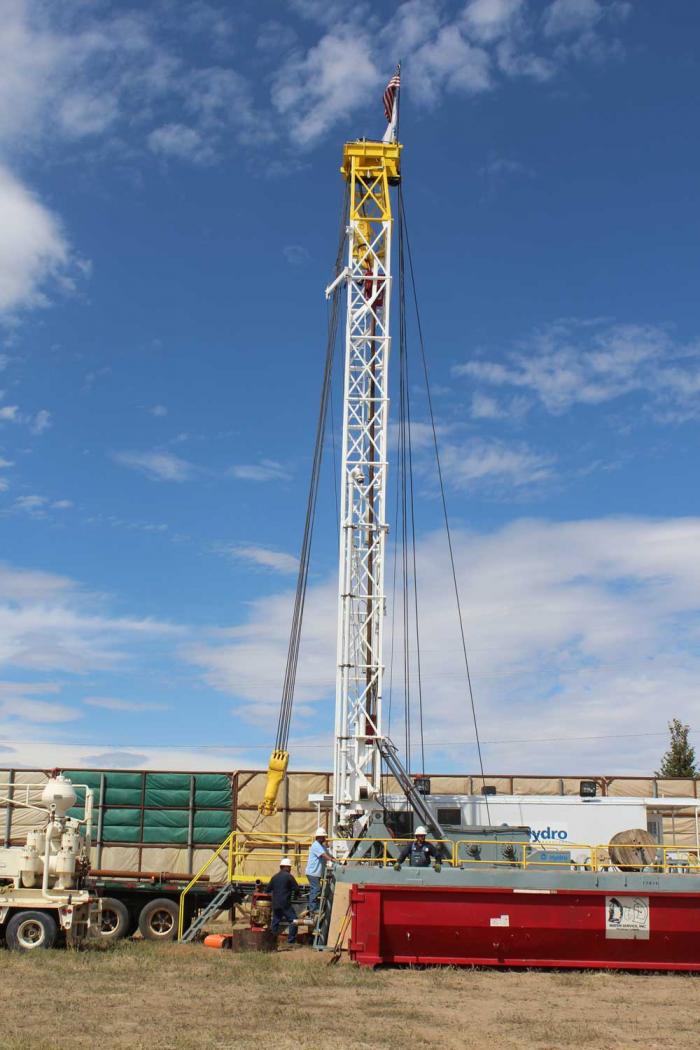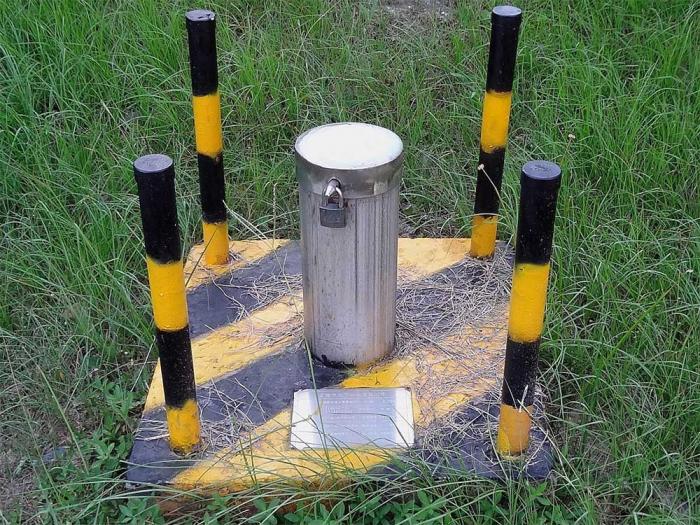October 2022 project update:
A small crew returned to the project site recently with a drill rig and pump to install a monitoring system in the well. This work will occur Monday through Friday, from 7 a.m. to 6 p.m., and last until early November.
Aquifer Storage and Recovery, or ASR, is the storage of clean, potable water in an aquifer for later recovery and use.
Many liken the concept to a savings account — water “deposits” can be made during wet years and stored indefinitely. During periods of dry weather, “withdrawals” can ease the burden on other water supplies.
Denver Water is exploring how ASR may contribute to delivering high-quality drinking water to our customers far into the future. Studying the feasibility of using ASR is part of our “all of the above” strategy, which includes conservation, expanding sources of supply, recycling water and more to ensure we can meet the future needs of customers in our service area.
Note: Aquifer Storage and Recover is in the long-term plans for Denver Water as a possible additional water storage option, and this work and research on Denver’s aquifers is preliminary. ASR is not viewed as an alternative to water storage projects like the Gross Reservoir Expansion Project.
What is Aquifer Storage and Recovery (ASR)?
Aquifer Storage and Recovery, or ASR, is the storage of clean, potable water in an aquifer for later recovery and use. Many liken the concept to a savings account — water “deposits” can be made during wet years and stored indefinitely. During periods of dry weather, “withdrawals” can ease the burden on other water supplies.
That's fracking, right?
No. The use of hydraulic pressure to increase the yield of a petroleum well (known as “fracking”) is as different from ASR as night and day. Whereas petroleum wells are sometimes injected with a mix of water, sand and other chemicals, ASR stores only clean, potable water in permeable rock formations that hold water naturally. Also, the depth of the average petroleum well is between 6,000 and 10,000 feet, while the water aquifers we would use for ASR are at an average depth of 500 to 2,000 feet.
What will this specific project involve?
This project involves drilling a test well at Denver Water’s Capitol Hill facility in Congress Park. We will then perform tests to help us understand how well the aquifer stores water, what happens to water quality after it has been stored in the aquifer, how easily water can be withdrawn, etc.
Map of Capitol Hill facility in Congress Park.
Drilling sounds like it will be disruptive. Will it?
While drilling will create noise, Denver Water is committed to minimizing this impact and inconvenience to nearby residences and public areas. We worked closely with the City and County of Denver to secure a variance to the city’s noise ordinance. We will perform our work under its regulations and oversight. This will include installation of 16-foot-tall sound walls around the work area to minimize noise and work site lighting impacts to our neighbors. We are monitoring the noise coming from the site 24/7, and the average decibel level coming from the site is approximately 62.1.decibels, which is about the volume of normal speech at 3 feet and slightly louder than a large business office.
When will the drilling begin?
Drilling is expected to begin the week of Oct. 18. 2021. Neighbors can expect drilling to occur 24 hours a day, seven days a week for approximately four to six weeks.
Why is Denver Water exploring the possible use of ASR?
Denver Water is responsible for securing reliable sources of water to meet our customers’ future needs. Experts suggest ASR has advantages over other long-term supply options as it tends to be comparatively less costly, less impactful to communities and less challenging from a permitting standpoint. Studying the feasibility of using ASR is part of our “all of the above” strategy, which includes conservation, expanding sources of supply, recycling water and more to ensure we can meet the future needs of customers in our service area.
Note: Aquifer Storage and Recover is in the long-term plans for Denver Water as a possible additional water storage option, and this work and research on Denver’s aquifers is preliminary. ASR is not viewed as an alternative to water storage projects like the Gross Reservoir Expansion Project.
Where does this project fit in the overall ASR exploration process?
ASR has been successful for other utilities in the Front Range, but more study is needed to learn about the aquifers under our feet in Denver. This program will help us learn more as we determine if pursuing ASR is a smart long-term investment for Denver Water. More study will likely be needed after this project is complete, but it is an important step.
Exploratory drilling for an ASR study conducted by Denver Water in September 2015 in northeast Denver.
What happens to water that has been stored in an aquifer? Does it come out at the same quality as it went in?
That is something this project will help us learn. No matter what, ensuring our customers receive the highest quality of water is our primary goal. Water extracted from an aquifer would be treated to meet or go beyond our quality standards before going to customers.
What will be done with the site after drilling is complete?
A small 2-by-1-foot concrete pad and 2-foot-tall monitoring well will remain on site after we are finished.
A typical monitoring wellhead, similar to what will remain on the site after the project is complete.



